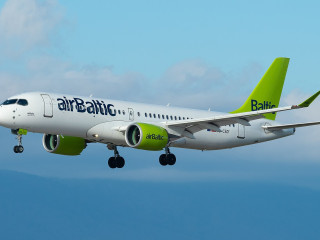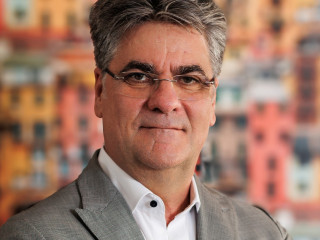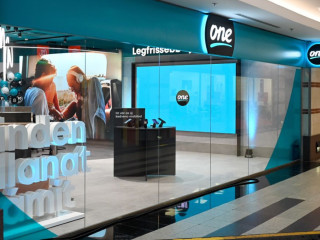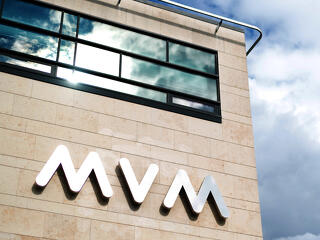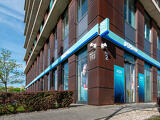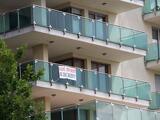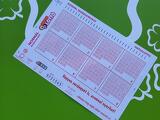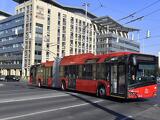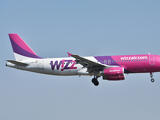SCM magazin, IV. évfolyam 6-7. szám, 2000. július-augusztus, disztribúció rovat
A cikk angol nyelvű változata
Today the shops of Plus Élelmiszer Diszkont Kft. can be found in almost every town. The national network of 120 shops is being continuously expanded. Deliveries to the outlets are carried out to a strictly determined timetable. The accuracy of delivery times is ensured by a vehicle optimisation programme.
Food retail concern Plus Élelmiszer Diszkont Kft., which is owned by the German Tengelmann concern, started its activity in Hungary in 1992. The first shop was opened in Tatabánya, followed by continuous expansion, first in the capital, then in the regions. Today the company has outlets in almost every town.
The company currently operates 100 Plus and 20 Kaiser’s stores. Almost half of these can be found in Budapest, we learned from Gábor Tomka, logistics director at the company.
Plus has carried out distribution through a separate company right from the start. TransPorta Kft. was selected in a closed tender competition in 1992. Since then the company has won the tender a further three times, mentioned Tomka.
It is interesting to note that eight years ago, when Tengelmann first set foot in Hungary, the German retail chain carried out its transportation in-house, without using an external company.
The fact that it is food that is being transported means that Plus set extremely high standards for its distribution company. It was a demand that the goods be transported in modern, reliable closed vehicles with tail-lifts, to make for easy handling of pallets. These vehicles naturally also had to be capable of being heated or refrigerated.
Shops in the chain are supplied from a central dry goods warehouse in Budapest. Fresh goods (fruit and vegetables) also arrive from Tengelmann-owned Interfruct Kft., said Tomka. Fresh goods make up around a third of all the goods that are delivered. Every year the company delivers around 300-330 pallets of goods to shops at various points around the country.
Fresh goods have to be delivered between six and seven in the morning to those shops which are unable to receive goods at night. In order for goods to arrive at 12 o’ clock on Wednesday, the order has to be placed on Monday afternoon at the latest. The central warehouse naturally has an on-line link to the shops, so orders are made electronically, said Péter Solti, CEO of TransPorta Kft.
He added that the deliveries are made according to a strictly defined timetable. This timetable is the basis for the system of ordering, and defines precisely and to the hour when goods should arrive. This is important because the shops have minimal warehouse and sales space, so goods have to be unpacked as soon as they arrive.
The timetable is reworked several times a year to account for changes in the turnover of shops. Communication between the two companies, therefore, is continuous. The frequency of deliveries depends on the turnover of the shop in question. Some outlets have such high turnover that they receive two deliveries a day, but some only receive goods three times a week. Deliveries can not be late, and this is in the interests of both parties, as the transporter has to pay compensation in the case of delays.
TransPorta Kft. registers every outgoing and incoming delivery, meaning that in the case of later problems every load can be traced. Delivery management is solved using an extremely modern delivery optimisation software, said Solti. Every day 50-70 loads are sent, day and night, to various points around the country. The programme is able to differentiate between differing routes and times of day, taking into account the weather and traffic conditions. If a road is closed, it calculate for a longer delivery time, due to the diversion. The programme also calculates optimally whether or not the day’s quantity of goods needs to be split up or not. The control centre remains in constant communication with the vehicles. The company uses several different types of vehicle: rigid trucks with the capacity for 19 pallets, and articulated wagons capable of carrying 30-35 pallets.
Loading takes only 20-40 minutes, but picking takes significantly longer. In all cases the goods a pre-picked and ready for transportation. While Plus operates the warehouse side of the logistics, Transport takes care of the transportation side.
TransPorta is owned by the Bau-Trans group, which has been offering road-transportation and related services in Austria for 27 years, and in Hungary since 1992. Bau-Trans Kft. was formed in 1989, while Trans-Port was founded in February 1992, mainly specialising in domestic and international road transportation. The company carries out all the distribution of bottled gas for MOL Rt. in the North Transdanubian region. TransPorta Kft. carries out complete national distribution services for Plus Élelmiszer Kft. and Spar Magyarország Kft. In addition the company also carries out nation-wide distribution for Matáv Rt.
Optimised distribution
Today the shops of Plus Élelmiszer Diszkont Kft. can be found in almost every town. The national network of 120 shops is being continuously expanded. Deliveries to the outlets are carried out to a strictly determined timetable. The accuracy of delivery times is ensured by a vehicle optimisation programme.

